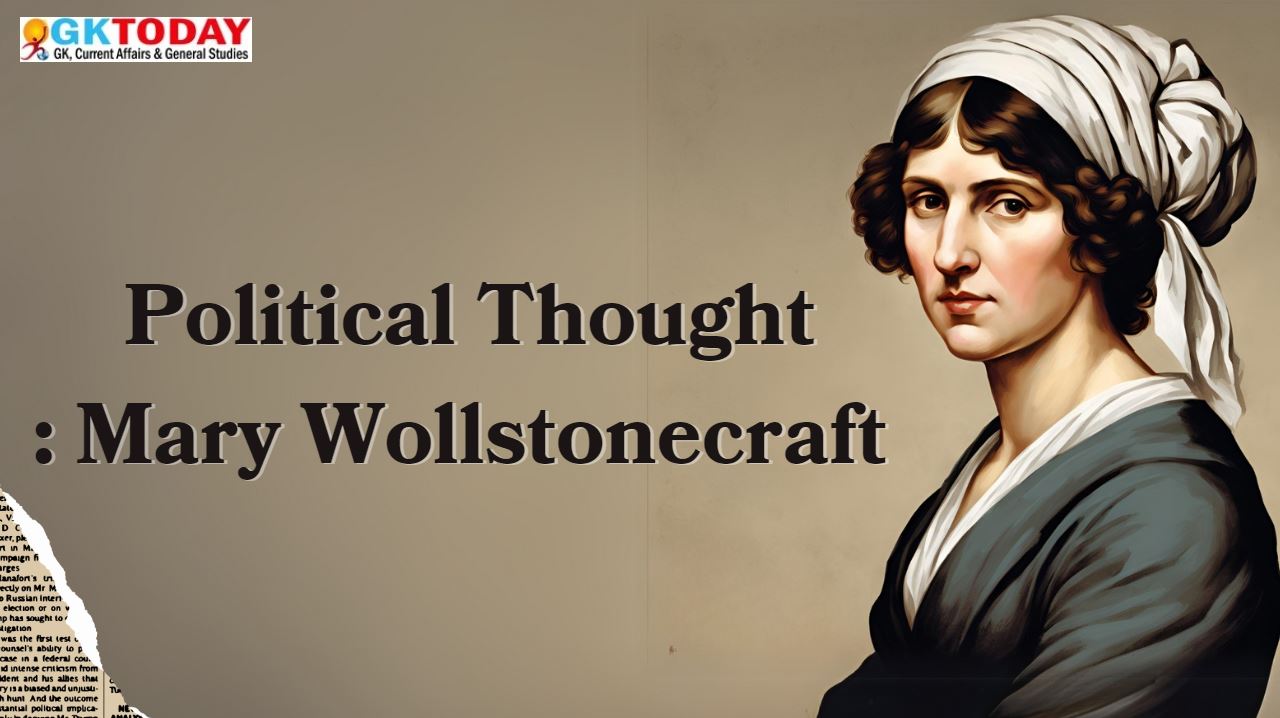UGC-NTA NET Political Science – Political Thought: Mary Wollstonecraft
Mary Wollstonecraft (1759-1797) was a very important figure in the development of modern feminist thought and political philosophy. Her works challenged the prevailing notions of her time, advocating for women’s rights and education. Wollstonecraft’s writings laid the groundwork for later feminist movements and continue to influence discussions on gender equality .
Biographical Overview
Mary Wollstonecraft was born on April 27, 1759, in Spitalfields, London. She lived a life marked by personal struggles and intellectual pursuits. Wollstonecraft’s career as a writer and philosopher began in her early adulthood. She authored several works, most notably “A Vindication of the Rights of Woman” (1792) and “A Vindication of the Rights of Men” (1790). She passed away on September 10, 1797, in London.
Key Ideas and Contributions
Wollstonecraft’s contributions to political thought are deep and multifaceted.
Advocacy for Women’s Rights
Wollstonecraft argued vehemently for the education of women. She believed that women should have equal rights in society. Her critiques of social and political structures brought into light the oppression faced by women. She posited that true equality could only be achieved through education and self-awareness.
Rationality and Education
Wollstonecraft viewed women as rational beings deserving of education. She asserted that education is crucial for women to develop their reasoning abilities. This idea was revolutionary at the time, as it challenged the belief that women were inherently inferior to men.
Critique of Marriage
In her writings, Wollstonecraft critiqued traditional marriage, describing it as a form of slavery for women. She advocated for marriages based on mutual respect and companionship rather than economic necessity, arguing that love should be the foundation of the marital relationship.
Social Contract
Influenced by Enlightenment thinkers, Wollstonecraft argued that women should be included in the social contract. She maintained that the rights of women are integral to the rights of humanity. This perspective was radical, as it challenged the exclusion of women from political and social discourse.
Philosophical Influences
Wollstonecraft was influenced by Enlightenment philosophers such as John Locke and Jean-Jacques Rousseau. While she admired many Enlightenment ideals, she critiqued Rousseau’s views on women, which suggested their subordination to men. Wollstonecraft countered these ideas, advocating for women’s autonomy and rights.
Impact on Feminism
Mary Wollstonecraft is often regarded as one of the founding figures of modern feminism. Her works have inspired generations of women’s rights activists. The discussions initiated by her writings laid the groundwork for future feminist movements, emphasizing the need for gender equality.
Legacy
Wollstonecraft’s ideas contributed to feminist theory and political thought. Her daughter, Mary Shelley, became famous for writing “Frankenstein,” furthering the intellectual legacy of the Wollstonecraft family. Today, her writings are studied in feminist theory, political philosophy, and literature.
Controversies and Critiques
During her lifetime, Wollstonecraft faced criticism for her progressive views on gender and sexuality. Many contemporaries viewed her ideas as threatening to the established social order. Despite this, her radical thoughts have since been recognised as foundational in feminist discourse.
Key Quotes
Wollstonecraft’s writings contain many notable quotes that encapsulate her philosophy. Two quotes are:
- “I do not wish them [women] to have power over men; but over themselves.”
- “The mind has no sex.”
Historical Context
Wollstonecraft was active during the Enlightenment and the early stages of the French Revolution. This period was marked by political and social upheaval. Her work reflects the tensions between traditional gender roles and the emerging ideas of individual rights and equality.
Recognition
Posthumously, Wollstonecraft has been recognised as figure in political thought and feminist theory. Her contributions are celebrated in various feminist movements and academic discussions. She is often cited as a pioneer who paved the way for future generations of feminists.
Related Thinkers
Several thinkers have expanded on Wollstonecraft’s ideas. Notable figures include:
- John Stuart Mill: Advocated for women’s suffrage and equality in his work “The Subjection of Women.”
- Simone de Beauvoir: Built upon Wollstonecraft’s ideas in her seminal text “The Second Sex.”
Even today, Mary Wollstonecraft remains a towering figure in the realm of political thought and feminist theory. Her advocacy for women’s rights, education, and rationality has left an indelible mark on history.




